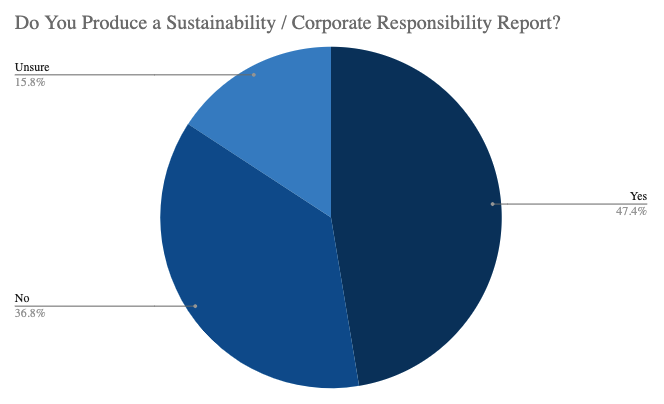There is a growing need for industry leaders to forefront sustainability initiatives that will build a more resilient and accessible future. BuiltWorlds has designed the 2023 Building Tech Survey to inform the 2023 Sustainability Report and 2023 Building Tech Report, both of which provide an agnostic view of the dynamic landscape associated with sustainability in the industry. The report draws on the comprehensive data and explores topics such as the evolving role of contractor sustainability teams, how ESG is moving the industry forward, and the venture lens of sustainable initiatives. Below we will be dissecting the three sections of the 2023 Sustainability Report.
Read the full report to gain a deeper understanding of the industry trailblazers and their sustainable initiatives.
The Shift in Sustainable Initiatives
The industry at large is beginning to utilize technology that is designed to combat unnecessary energy use, making the world’s buildings smarter and more sustainable. Building owners and managers of buildings can become a part of the change by leveraging real-time data from IoT-enabled sensors and meters, reducing their costs, and optimizing operations all while being environmentally conscious.
There are a myriad of sustainability-centric solutions within the space, making it challenging for companies to select the most favorable solution for their specific needs. With this uncertainty, 50% of respondents of the 2023 Building Tech Survey expressed their intention to significantly increase their investments in sustainability initiatives within the upcoming year, either through internal research and development or by forming external partnerships and pilot projects.
With the presence of larger sustainability teams, contractors can begin to adhere to the ever-evolving green building standards and expectations. This includes initiatives such as generating an annual sustainability report or accurately monitoring and disclosing carbon emissions. These reports are meant to highlight various important measures and themes, such as the development of net zero/carbon neutrality plans, internal growth opportunities for employees, promotion of fair and equitable work environments, and contributions made to local communities. Below is a breakdown of the number of companies who were respondents in our survey and whether or not they produce these reports.

Tracking and Reporting
Buildings contribute to nearly 40% of global-related carbon emissions, making it critical for contractors to track and report their carbon output. Sixty-five percent of respondents to our survey stated that they are “frequently” or “sometimes” required to provide metrics pertaining to green practices in RFQs/RFPs. Some of the key areas included are waste management, diversity, water consumption, LEED projects completed, and renewable energy usage. As the need to provide these metrics continues to grow, organizations are beginning to seek software solutions that streamline the process. Some solutions that were identified by respondents to help with green building practices include: One Click LCA, Green Badger, and QFlow Systems.
Paving the Way Forward
The pursuit of lasting sustainable change is an ongoing journey, and the industry has already made notable strides in the right direction. These advancements can be seen through increased investments in green solutions, the expansion of sustainability teams, and the enhancement of Social Responsibility/Sustainability Reports. The spirit of innovation permeates in many different ways within the space–from the selection of construction materials, the implementation of efficient energy and operational systems, and the approach to designing a building itself.
Taking a look forward, we analyzed respondents' opinions as to what the most impactful areas for improving sustainability within the built world are. Among the identified areas, Energy Systems/HVAC and High-Performance Materials led the pack as clear favorites, signifying their potential to drive positive change. Modular Systems and Supply Chain Technology also gained notable recognition for their potential future contributions to the industry. As the trek towards a sustainable future continues, it is evident that embracing emerging technologies, prioritizing energy-efficient systems, and pushing for innovation will pave the way for better, and greener, buildings.
Want to be a part of the conversation with industry trailblazers?
Join us at the 2023 Americas Summit to discuss ESG, the drivers for carbon footprint reduction, and the evolving landscape of the industry.

Discussion
Be the first to leave a comment.
You must be a member of the BuiltWorlds community to join the discussion.